MHPA's WEBINAR WEDNESDAYS SERIES
2024 WEBINARS
Driving Quality and Advancing Health Care Access at the Pharmacy
Wednesday, January 22, 2025 | 2 p.m. ET
 One in five Americans live in areas where hospitals, doctors, specialists and other health care providers may not be easily accessible. To help fill this void while avoiding negative health outcomes, providers envision pharmacists stepping in during the preventative care stage to collaborate more closely, assume a larger role in the overall preventative care approach and become more specialized in the treatment of specific conditions.
One in five Americans live in areas where hospitals, doctors, specialists and other health care providers may not be easily accessible. To help fill this void while avoiding negative health outcomes, providers envision pharmacists stepping in during the preventative care stage to collaborate more closely, assume a larger role in the overall preventative care approach and become more specialized in the treatment of specific conditions.
Join us to learn how Evernorth is working to expand and deliver convenient care at pharmacies through MoreThanRx, a program designed to increase access to testing services, vaccinations, medication therapy management, medication administration and more.
In addition, we’ll share how Evernorth is reimagining independent pharmacy partnerships through the IndependentRx Initiative, which broadens pharmacy services, leverages pharmacists’ clinical expertise and increases access to high-quality health care services to all communities in the U.S., accelerating a sustained commitment to both pharmacies and patients nationwide.
Speakers:
Ashley Holzworth-Nash, PharmD
Vice President Product Strategy and Solutions - Network
Express Scripts by Evernorth
Stephanie Smith Cooney, PharmD
Senior Director Independent Pharmacy Affairs
Express Scripts by Evernorth
Emily Stigler
Director Product Strategy and Solutions
Express Scripts by Evernorth
Register Now
Putting the "Aid" Back in Medicaid: The Link Between SDOH and Quality
Wednesday, December 11, 2024 | 2 p.m. ET
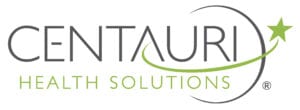
There is so much that goes into organizational strategy for achieving healthcare's Quintuple Aim that it is easy to forget that "Medicaid" is actually a compound word - "Medic" refers to "medical care," and "Aid" refers to "help." Because CMS is under a Presidential directive to address social determinants of health (SDOH) and promote health equity, it released the CMS Framework for Health Equity 2022-2032, and HHS has leveraged its authority under Medicaid and Medicare to advance policies intended to address SDOH and health-related social needs (HRSN).
It has been estimated that 80 to 90 percent of healthcare outcomes are related to SDOH and the remainder are related to organic causes. Medicaid recipients are disproportionately affected by these SDOH, and every state's population will have unique systemic and environmental factors and HRSN in their communities that result from these SDOH. Addressing these SDOH requires a multifaceted approach, and all organizations - government, payers, providers, members, and communities - have a part to play in identifying needs, collecting and sharing data, and providing appropriate referrals. This is critical to laying a strong foundation for value-based care, achievement of the Quintuple Aim, and putting the "Aid" back in "Medicaid."
Register Now
Equity in Every Birth: Progress and Solutions for Addressing Maternal Health Equity in Minnesota
Wednesday, December 18, 2024 | 1 p.m. ET
 NourishedRx, in partnership with Blue Cross and Blue Shield of Minnesota and Blue Plus’ Healthy Pregnancy Program, is transforming maternal health outcomes for BIPOC communities. By providing over100 Medicaid-enrolled women with nutritious foods, culturally responsive education, and tailored support, the program has significantly reduced NICU admissions, low birth weight births, and food insecurity. Beyond immediate health benefits, this initiative has generated valuable insights into designing and scaling impactful maternal health interventions. In this webinar, we will share updated data and outcomes from an expanded cohort, illustrating how personalized nutrition and culturally aligned care are advancing equity in maternal and infant health.
NourishedRx, in partnership with Blue Cross and Blue Shield of Minnesota and Blue Plus’ Healthy Pregnancy Program, is transforming maternal health outcomes for BIPOC communities. By providing over100 Medicaid-enrolled women with nutritious foods, culturally responsive education, and tailored support, the program has significantly reduced NICU admissions, low birth weight births, and food insecurity. Beyond immediate health benefits, this initiative has generated valuable insights into designing and scaling impactful maternal health interventions. In this webinar, we will share updated data and outcomes from an expanded cohort, illustrating how personalized nutrition and culturally aligned care are advancing equity in maternal and infant health.
Learning Objectives
- Understand how tailored nutrition support drives maternal health engagement and improves outcomes.
- Explore the role of cultural concordance in building trust and achieving meaningful health improvements.
- Learn key strategies for assessing the impact of maternal nutrition programs on both maternal and infant health metrics.
Presenters: • Jennifer Keaton, Healthcare Analyst, Blue Cross and Blue Shield of Minnesota • Amy Bloomquist, Director of Customer Success, NourishedRx
Register Now
Putting the "Aid" Back in Medicaid: The Link Between SDOH and Quality
Wednesday, December 11, 2024 | 2 p.m. ET

There is so much that goes into organizational strategy for achieving healthcare's Quintuple Aim that it is easy to forget that "Medicaid" is actually a compound word - "Medic" refers to "medical care," and "Aid" refers to "help." Because CMS is under a Presidential directive to address social determinants of health (SDOH) and promote health equity, it released the CMS Framework for Health Equity 2022-2032, and HHS has leveraged its authority under Medicaid and Medicare to advance policies intended to address SDOH and health-related social needs (HRSN).
It has been estimated that 80 to 90 percent of healthcare outcomes are related to SDOH and the remainder are related to organic causes. Medicaid recipients are disproportionately affected by these SDOH, and every state's population will have unique systemic and environmental factors and HRSN in their communities that result from these SDOH. Addressing these SDOH requires a multifaceted approach, and all organizations - government, payers, providers, members, and communities - have a part to play in identifying needs, collecting and sharing data, and providing appropriate referrals. This is critical to laying a strong foundation for value-based care, achievement of the Quintuple Aim, and putting the "Aid" back in "Medicaid."
Register Now
Driving Quality and Advancing Health Care Access at the Pharmacy
Wednesday, December 4, 2024 | 2 p.m. ET

One in five Americans live in areas where hospitals, doctors, specialists and other health care providers may not be easily accessible. To help fill this void while avoiding negative health outcomes, providers envision pharmacists stepping in during the preventative care stage to collaborate more closely, assume a larger role in the overall preventative care approach and become more specialized in the treatment of specific conditions.
Join us to learn how Evernorth is working to expand and deliver convenient care at pharmacies through MoreThanRx, a program designed to increase access to testing services, vaccinations, medication therapy management, medication administration and more.
In addition, we’ll share how Evernorth is reimagining independent pharmacy partnerships through the IndependentRx Initiative, which broadens pharmacy services, leverages pharmacists’ clinical expertise and increases access to high-quality health care services to all communities in the U.S., accelerating a sustained commitment to both pharmacies and patients nationwide.
Presenters:
Ashley Holzworth-Nash, PharmD
Vice President Product Strategy and Solutions - Network
Express Scripts by Evernorth
Stephanie Smith Cooney, PharmD
Senior Director Independent Pharmacy Affairs
Express Scripts by Evernorth
Emily Stigler
Director Product Strategy and Solutions
Express Scripts by Evernorth
Register Now
Transform Care Navigation for Maternal Health Journeys and Chronic Conditions Management
Wednesday, October 9, 2024 | 2 p.m. ET
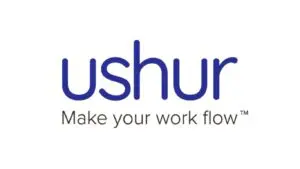
State Medicaid programs, health plans and members alike pay significantly higher costs when appropriate care and resources aren’t understood and utilized in a timely manner, especially in complex care situations. The National Institute of Health (NIH) estimates that failures in care coordination account for nearly $80 billion in costs per year.
Join this webinar to learn how personalized care navigation for Medicaid members with complex care needs can lead to improved health outcomes while delivering significant cost savings. Attendees will discover how HIPAA-secure automation strategies can significantly improve outcomes and quality of life for Medicaid members with costly chronic conditions. Discover how to dramatically improve access to care by simplifying the touchpoints between Medicaid health plans, providers, and members with intuitive self-service.
Our expert panel will discuss:
- Delivering proactive, conversational outreach to Medicaid members with complex care navigation needs
- Guiding expectant mothers to care, education and services to improve health outcomes and reduce high-cost complications
- Capturing critical information from relevant life events through HIPAA-secure channels
- Improving quality of care and population health
Panelists:
Yvonne Daugherty, Global Head of Industries, Ushur
Stephen Jacobs, Senior Solution Consultant, Ushur
Transforming Access to Contraceptive Care: The Role of Medicaid Managed Care Organizations
Wednesday, November 13, 2024 | 2 p.m. ET

Family planning has been a required benefit in the Medicaid program since 1972, and today, 77% of women of reproductive age who are entitled to comprehensive Medicaid coverage are enrolled in managed care. Medicaid Managed Care Organizations (MCOs) are uniquely positioned to improve access to high-quality contraceptive services within their health plan networks. However, even with federal and state requirements to support and provide access to family planning, 63% of MCOs identified low or no availability of providers as a top barrier to addressing the sexual and reproductive health needs of their members.
During this webinar, hosted by MHPA partner Upstream USA, attendees will:
- Understand the impact of MCOs on access to contraceptive care
- Explore strategies for improving access to and the quality of contraceptive care delivery within Medicaid plans
- Learn best practices for partnering with organizations to expand access and improve patient outcomes
- Understand the value of increasing access to contraceptive services for their network
Presenters:
-
Emily Eckert, MS - Associate Director of Federal Policy, Upstream USA
-
Kimberly Potter, MSW MPH - Vice President of Practice Transformation, Upstream USA
Register Now
Transform Care Navigation for Maternal Health Journeys and Chronic Conditions Management
Wednesday, October 9, 2024 | 2 p.m. ET

State Medicaid programs, health plans and members alike pay significantly higher costs when appropriate care and resources aren’t understood and utilized in a timely manner, especially in complex care situations. The National Institute of Health (NIH) estimates that failures in care coordination account for nearly $80 billion in costs per year.
Join this webinar to learn how personalized care navigation for Medicaid members with complex care needs can lead to improved health outcomes while delivering significant cost savings. Attendees will discover how HIPAA-secure automation strategies can significantly improve outcomes and quality of life for Medicaid members with costly chronic conditions. Discover how to dramatically improve access to care by simplifying the touchpoints between Medicaid health plans, providers, and members with intuitive self-service.
Our expert panel will discuss:
- Delivering proactive, conversational outreach to Medicaid members with complex care navigation needs
- Guiding expectant mothers to care, education and services to improve health outcomes and reduce high-cost complications
- Capturing critical information from relevant life events through HIPAA-secure channels
- Improving quality of care and population health
Panelists:
Yvonne Daugherty, Global Head of Industries, Ushur
Stephen Jacobs, Senior Solution Consultant, Ushur
Case Study of Food is Medicine in Kentucky - How to develop a statewide referral, enrollment, and engagement hub for improved health outcomes
Wednesday, October 23, 2024 | 2 p.m. ET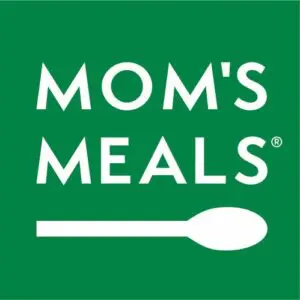
This pilot study demonstrates how to establish a statewide program integrating screening, referral, and engagement to address food insecurity among those with diet-sensitive health conditions. By connecting clinical, community, and health insurance partners, and linking with federal nutrition services, the study highlights the potential of food is medicine programs to be scaled across other states. Key outcomes from this presentation will highlight impacts of participating in a food is medicine program from the patient and provider perspective. In general, patients reported high satisfaction and compliance, indicating that tailored interventions such as medically tailored meals could significantly enhance health outcomes for Medicaid adults. The Food as Health Alliance continues to expand opportunities to link with health care providers, health insurance, and patients to improve health outcomes and assist with referral into community resources and federal nutrition assistance programs.
Take Aways:
- Understand the interworking and key factors to develop statewide food is medicine programs
- Describe the key process and steps for scaling this work across other states
- Explain the policy implications for food is medicine
Presenters:
-
Alison Gustafson, PhD, MPH, RD Martin Gatton Foundation Endowed Chair and Professor in the Department of Dietetics and Human Nutrition, at Martin Gatton College of Agriculture, Food, and Environment and College of Nursing.
-
Cole Bradham, Vice President, Medicaid Innovations - Mom’s Meals
Register Now
Transform Care Navigation for Maternal Health Journeys and Chronic Conditions Management
Wednesday, October 9, 2024 | 2 p.m. ET

State Medicaid programs, health plans and members alike pay significantly higher costs when appropriate care and resources aren’t understood and utilized in a timely manner, especially in complex care situations. The National Institute of Health (NIH) estimates that failures in care coordination account for nearly $80 billion in costs per year.
Join this webinar to learn how personalized care navigation for Medicaid members with complex care needs can lead to improved health outcomes while delivering significant cost savings. Attendees will discover how HIPAA-secure automation strategies can significantly improve outcomes and quality of life for Medicaid members with costly chronic conditions. Discover how to dramatically improve access to care by simplifying the touchpoints between Medicaid health plans, providers, and members with intuitive self-service.
Our expert panel will discuss:
- Delivering proactive, conversational outreach to Medicaid members with complex care navigation needs
- Guiding expectant mothers to care, education and services to improve health outcomes and reduce high-cost complications
- Capturing critical information from relevant life events through HIPAA-secure channels
- Improving quality of care and population health
Panelists:
Yvonne Daugherty, Global Head of Industries, Ushur
Stephen Jacobs, Senior Solution Consultant, Ushur
Maximizing the Benefits of Your NEMT Program to Have the Greatest Impact on Patient Health
Wednesday, August 28, 2024 | 2 p.m. ET

Areas of discussion will include:
- NEMT's critical role as an influencer of the Social Determinants of Health (SDoH)
- NEMT's potential effect on member satisfaction
- Addressing the key pain points in NEMT programs: Service, Cost, Data
Register Now
Actionable Steps for Managing Maternal and Infant Health to Improve Outcomes while Reducing Costs
Wednesday, August 14, 2024 | 2 p.m. ET
Despite a renewed focus among stakeholders, U.S. maternal and infant health mortality and morbidity outcomes are some of the worst among developed nations. Costs related to the newborn population are some of the fastest growing in healthcare, driven primarily by infants requiring NICU services.
Such cases represent a small percentage of the newborn population yet drive a disproportionate percentage of costs. Health plans are struggling to fund the required investment needed to manage and mitigate the risks associated with their maternal and infant health crisis.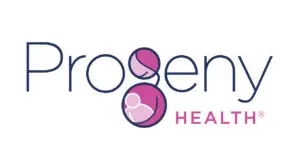
Optimizing maternal infant health outcomes, controlling costs and mitigating rising risks requires a comprehensive approach that includes all pregnancies. In this session, ProgenyHealth will discuss the key levers that drive costs as well as behavioral health and social drivers. By shifting the focus to the entire newborn population and supporting pregnancies for all risk levels and managing NICU utilization, health plans are achieving positive results across this population.
Join us for this foundational discussion and recommended actions for achieving success. The discussion will set the stage for a panel at MHPA24 on September 12th that will include health plan leaders who have adopted this model and will share their experiences and results.
Register Now
Tackling Social Determinants of Health and Advancing Health Equity through Community Based Social Support Groups
Wednesday, August 7, 2024 | 2 p.m. ET
Don’t miss out on this webinar and the chance to explore Wider Circle's Connect for Life program; a groundbreaking approach to healthcare by directly
tackling social determinants of health (SDoH) and promoting equity within vulnerable communities. Through leveraging the power of community connections, the program harnesses peer pressure dynamics to drive gap closure, quality improvements and to bolster member retention rates. By fostering a sense of belonging and support, individuals are empowered to take proactive steps towards better health, leading to improved outcomes, heightened satisfaction, and increased engagement.
Join us to learn how Wider Circle's model demonstrates scalability and a measurable return on investment (ROI), making it a compelling solution for addressing SDoH at scale. By leveraging community-based social support groups the program effectively reaches a broader audience while delivering tangible cost savings for managed care organizations. By prioritizing community engagement and personalized support, Wider Circle not only enhances member communication but also effectively mitigates healthcare inequities, ensuring that all individuals receive the care they need to thrive.
Register Now
Panel: Discussing innovative pharmacy strategies and the latest in technology to close care gaps in Medicaid populations
Thursday, June 20, 2024 | 2 p.m. ET
In 2025, health care will generate 36% of the world’s data volume. Blending and analyzing Information from multiple sources, from medical and pharmacy claims to real time vitals from innovative wearable health monitors, will be attainable. Barriers to utilizing this wealth of data often include insufficient human or clinical resources and the inability to turn raw data around into actionable insights in a timely manner. This often poses a challenge for healthcare in not only knowing how to help, but exactly who needs help, and when.
What if those barriers were removed? Imagine a preventative health initiative that can identify fluctuations in medication adherence, changes in medication regimes that impact HEDIS and STAR measures or a new chronic disease diagnosis that notifies the appropriate health care professional with a recommended intervention, all in real-time. Join us to learn about how to efficiently target Medicaid individuals based on their unique health profile, explore solutions to close care gaps and to understand the role AI will play from automation to personalized patient care.
Navigating the Growing Role of Managed Care in Medical Respite Care
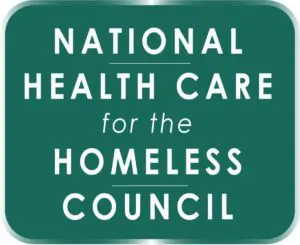
Wednesday, June 12, 2024 | 2 p.m. ET
Managed care plans are increasingly paying for health-related social needs, to include medical respite care (aka recuperative care), an intervention for people experiencing homelessness needing a post-hospital/post-acute care venue to heal and connect to greater services. This discussion will provide some basics about medical respite care, describe how Medicaid and managed care plans are approaching reimbursements, and share some lessons learned from early statewide adoption of reimbursements.
Implementing the New CMS Medicaid Managed Care Rules
Wednesday, May 22, 2024 | 2 p.m. ET
Implementing best practices to mitigate medication-related risks can also optimize therapy. Learn how this approach:
Explore and discuss the implications and next steps for implementation of the new Medicaid Program; Medicaid and Children’s Health Insurance Program (CHIP) Managed Care Access, Finance, and Quality rule as well as key considerations for states and managed care plans serving Medicaid beneficiaries. We’ll share insights regarding impacts on Medicaid managed care programs and states as they proceed to implement the provisions of the final rule.
Leesa Allen, Managing Director from Sellers Dorsey will moderate the panel that includes Kelly Munson, President and CEO of AmeriHealth Caritas, and Jay Ludlum, North Carolina Deputy Secretary for Medicaid, as well as Karen Brach, Managing Director at Sellers Dorsey. Each speaker will provide a unique perspective on the impacts and changes they foresee in their programs.
Leveraging Pharmacy to Improve Clinical and Cost Outcomes for Members with Complex Needs
Wednesday, May 8, 2024 | 2 p.m. ET
Implementing best practices to mitigate medication-related risks can also optimize therapy. Learn how this approach:
- Analyzes the impact of member complexity, lack of access to full medication profiles and adverse drug events (ADEs) on clinical and financial outcomes.
- Provides insight into pharmacy best-practices for members with complex, chronic medical needs—including start of care services, clinical pharmacy support, adherence interventions and technology to mitigate safety risks.
- Identifies proven results that positively impact member adherence, mortality rates, healthcare utilization and total cost of care.
Bridging Care Gaps: Unleash the Power of Mobile Integrated Health (MIH)
Wednesday, May 1, 2024 | 2 p.m. ET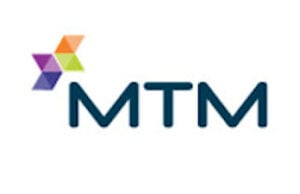
Adults who live in rural areas are 78% less likely to receive home-based medical care than those who live in larger metropolitan counties—a staggering statistic that can lead to higher ER utilization, more hospital readmissions, and increased healthcare costs. Mobile Integrated Health (MIH) is a powerful approach to healthcare that is revolutionizing the way health plans nationwide—particularly in rural communities—offer healthcare access to their members. Learn how MIH programs seamlessly integrate technology, community paramedicine, Community Health Worker resources, and community-based organizations to deliver proactive, patient-centered care. And by leveraging real-time data with an emphasis on social determinants of health (SDOH), you’ll learn how MIH programs like MTM’s identify and fill gaps in care, reduce unnecessary hospital visits, and improve overall health outcomes.
3 Behavioral Health Strategies You Can Implement Now to Improve Outcomes and Decrease Costs of Care in Marginalized Populations
Wednesday, April 17, 2024 | 2 p.m. ET
Forty percent of all adults enrolled in Medicaid experience mental illness or substance use disorder (SUD) and account for nearly half of all healthcare expenditures. Mental illness is often exacerbated by social and economic factors and individuals with severe mental illness are 2 to 3 times more likely to live in poverty, affecting their access to care. Yet, traditional outpatient behavioral healthcare often falls short in addressing the full spectrum of needs faced by many members, especially marginalized and high-cost members with social needs.
Join us to learn three innovative ways an integrated behavioral health solution has proven to help health plans:
- Reduce total costs of care for high cost members.
- Address clinical and social needs, while also improving quality measures.
- Empower members with the right tools required for long-term success.
Breaking Down Barriers of Food Insecurity - A multi-factor approach to end hunger in a small town
Wednesday, March 20, 2024 | 2 p.m. ET
2024 | 2 p.m. ET
Social Determinants of Health (SDoH) data and analytics, coupled with community-driven initiatives, have catalyzed innovative solutions to combat a hunger crisis. Through compelling storytelling and real-world examples, we will unveil the transformative power of collaboration and data-driven decision-making in tackling one of society's most pressing challenges. Join us for an insightful webinar as we delve into the complexities of addressing food insecurity in a small rural town in Appalachian Maryland and explore a multi-faceted approach to solving a hunger crisis.
How Medicaid Health Plans Can Build Collaborative Models to Address the National Maternal and Infant Health Emergency 
Wednesday, February 21, 2024 | 2 p.m. ET
The U.S. is facing a maternal and infant health emergency. Despite renewed commitments from healthcare stakeholders to stem the tide, no one entity has significantly had impact. With 40% of births in America covered by Medicaid, MHPA members play a vital leadership role. Join us for a robust discussion on how collaborative models have the potential to dramatically impact preventable maternal health risks and death, reduce preventable preterm birth, and close the health equity gap for every family. The webinar will address challenges that are driving the current maternal and infant health crisis, feature a discussion on common barriers to collaboration, and include examples of how policymakers, providers, payers, partners, and non-profits are working together to drive sustainable change.
 Sharing the Care: The Path to Better Outcomes
Sharing the Care: The Path to Better Outcomes
Wednesday, January 24, 2024 | 2 p.m. ET



